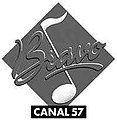History
Puma TV was founded as Bravo TV by singer and actor José Luis Rodríguez González (also known as "El Puma") in 1995. Shortly after it went on the air, Bravo TV's name was changed to Puma TV because the name already belonged to a Canadian cable television network.
In 1998, the network raised the amount of original productions from 16 to 20 and expanded their over-the-air coverage to all of Venezuela. Due to economic problem, towards the end of its existence, Puma TV was only seen over-the-air in the cities of Caracas and Maracaibo.
After the 2002-2003 Venezuelan general strike, Puma TV suffered a severe economic crisis that resulted in a 60-day shut down in mid-2003. This measure obligated Puma TV's investors to put the network up for sale, which resulted in its purchase by the Unión Radio Group (a corporation which also controlled the radio stations Éxitos, Onda La Mega Estación, Unión Radio Noticias, and Unión Radio Deportes). The following year, Puma TV was purchased by a group of businessmen with the goal of using the transmitters for a 24-hour news channel in order to compete with Globovisión. After much delay, Canal i (the proposed 24-hour news channel) went on the air on October 5, 2007, thus ending Puma TV's history.
This page is based on this
Wikipedia article Text is available under the
CC BY-SA 4.0 license; additional terms may apply.
Images, videos and audio are available under their respective licenses.



